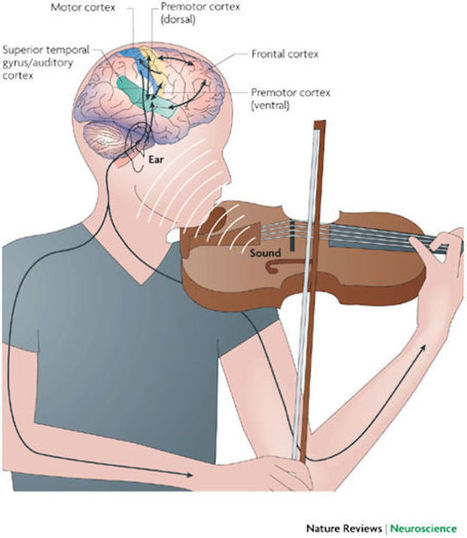Let us begin this article by asking the question what is 'synaesthesia'? Well synaesthesia can be described as people having 'hallucinations'. A hallucination roughly speaking is usually an error of the brain in its interpretation of the mass of sense-data, which our senses send to the brain. The the most common example of this is the falling sensation, this is when a person thinks they are physically falling when they are on the verge of falling to asleep.
The most typical of these synaesthesia experiences is probably in relation between music and colour. This is when a person sees colour when he or she hears music, this is often known as as 'colour hearing'. This particular experience has been known since antiquity.
A number composers have actually been fascinated by this concept of 'colour hearing'. They have included Sir Arthur Bliss, whose composition 'The Colour Symphony', offers a vivid recollection about his own personal colour perceptions that may have passed through his mind and imagination while he was composing this symphony. Each and every one of the titles of the movements is in fact a colour. 'The 'First Movement': Purple the Colour of Amethysts, Pageantry, Royalty and Death. The 'Second Movement': Red the Colour of Rubies, Wine, Revelry, Furnaces, Courage and Magic. 'The 'Third Movement' : Blue the Colour of Sapphires, Deep Water, Skies, Loyalty and Melancholy. The 'The 'Fourth Movement': Green the Colour of Emeralds, Hope, Joy, Youth, Spring and Victory.
For other composers musical keys seemed to have held a great deal of interest. Beethoven for instance is known to have referred to the B minor key as a black key. If one accepts black as being a symbol associated with death together with suffering and many other darker emotions, Beethoven must have thought of this key as gloomy and sad. This music however is not as nearly as so dark, tragic and heartbreaking as when the key of B minor was used by J.S. Bach in his own compositions. The music which flowed from this genius mind in the B minor key is some of the most despairing, desolating and painful music within that key.
The Russian composers Rimsky-Korsakov and Scriabin both developed strong associations between particular musical keys and colours though each interpreted these associations in their own way. Though generally there are disagreements among composers on what colours relate to what musical keys, these differences are fundamentally unimportant compare to whether these types of relationships and connections exist any way.
Different parts of the orchestra have even being given colours, black for instance has been given for strings and voices, red for brass and drums, blue for wood. It has even been suggested that to help to make orchestral scores easier to read, the above colours ought to be used in the printing of the staves committed to the different families of musical instruments. Associations have also been made between timbre and colour such as cello - indigo blue, human voice - green, trumpet - red, bassoon – violet and so forth.
So irrespective whether or not an individual person has actually have has personal knowledge of “colour hearing” for themselves, there do exist people for which the synaesthesia experience connecting music and colour is a very real experience and not simply an 'hallucination'.





_Met_DP890634.jpg)
_Met_DP890634.jpg)